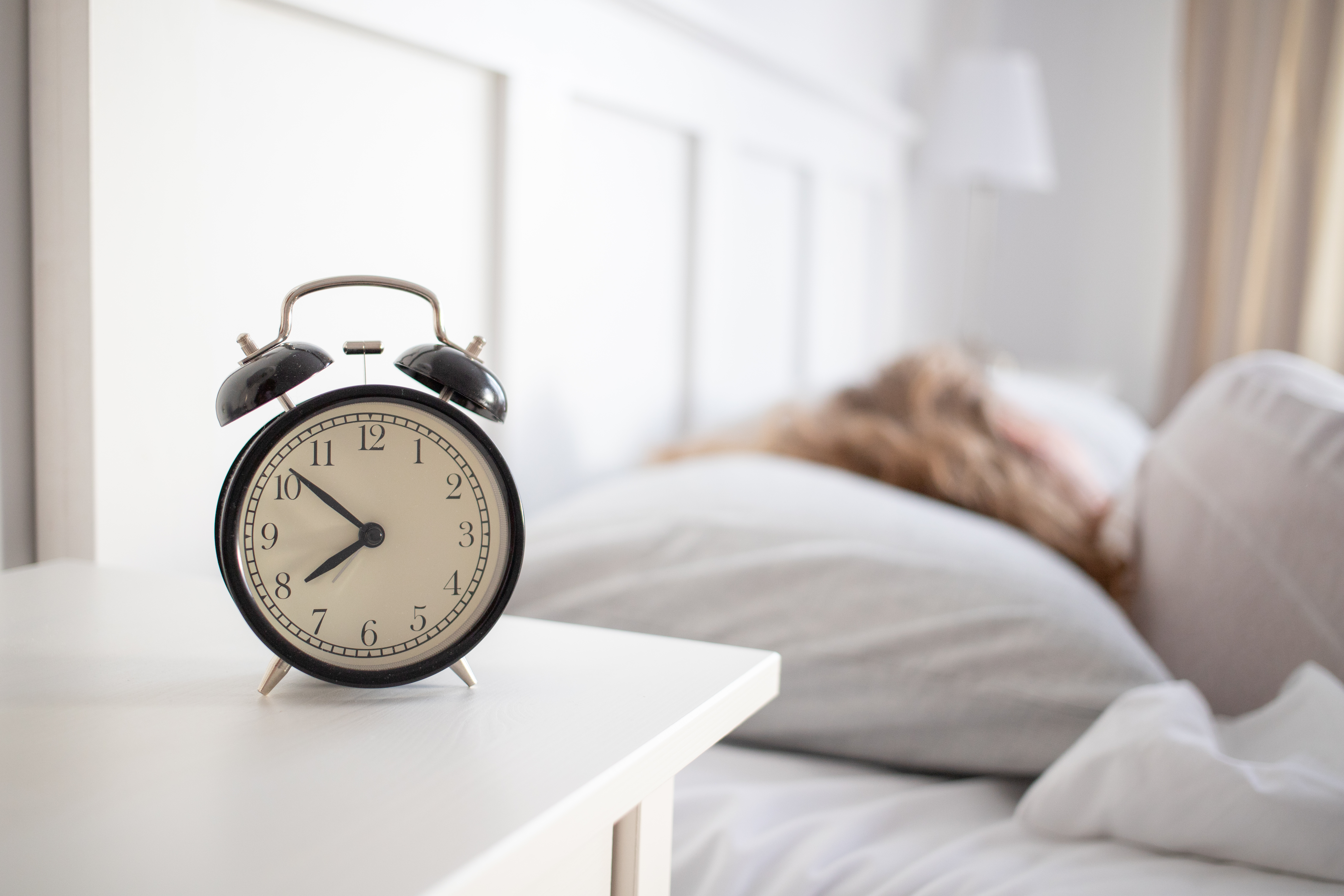The 10-Minute Bedtime Routine for Better Rest
In today’s fast-paced world, many people struggle to find a peaceful night's sleep, often waking up feeling groggy and unrested. This is where the power of a bedtime routine comes into play. A well-structured bedtime routine is not just a series of actions before sleep; it’s a signal to your body that it’s time to wind down and prepare for rest. This article will guide you through an effortless 10-minute bedtime routine designed to help you drift into dreamland and enjoy truly restful nights. By incorporating these simple yet effective practices, you can transform your sleep quality and overall well-being.
1. The Science of Sleep: Understanding Your Circadian Rhythm

To fully appreciate the benefits of a bedtime routine, it's essential to understand the science of sleep, particularly the role of the circadian rhythm. This natural, internal process regulates the sleep-wake cycle and repeats roughly every 24 hours. It is influenced by environmental cues, such as light and temperature. By aligning your bedtime routine with your circadian rhythm, you can enhance sleep quality. This synchronization helps ensure that your body is ready to rest when you go to bed, leading to deeper, more restorative sleep. Understanding and working with your body’s natural rhythms is a crucial step in achieving restful nights.
2. Creating the Perfect Sleep Environment

The environment in which you sleep plays a significant role in the quality of your rest. Creating a perfect sleep environment involves several key elements: temperature, noise, light, and comfort. Aim for a cool room temperature, as this can help lower your body temperature and induce sleepiness. Reducing noise and blocking out light with blackout curtains or an eye mask can prevent disruptions during the night. Lastly, ensure that your mattress and pillows provide adequate support and comfort. By optimizing these factors, you create a haven for sleep that complements your bedtime routine and enhances its effectiveness.
3. The Power of Consistency: Sticking to a Sleep Schedule

Consistency is a cornerstone of any effective bedtime routine. Going to bed and waking up at the same time every day, even on weekends, helps regulate your body's internal clock. This regularity reinforces your circadian rhythm and can make falling asleep and waking up easier. A consistent sleep schedule can also improve the overall quality of your sleep, making your bedtime routine more effective. By committing to a regular sleep schedule, you signal to your body that it’s time to wind down, helping you drift into dreamland more effortlessly each night.
4. Mindful Breathing: Calming the Mind and Body

Mindful breathing is a simple yet powerful technique to incorporate into your bedtime routine. It involves focusing on your breath and practicing deep, slow breathing to calm the mind and body. This practice can reduce stress and anxiety, which are common barriers to restful sleep. By spending just a few minutes on mindful breathing before bed, you can lower your heart rate and promote relaxation. This state of calmness is essential for a smooth transition from wakefulness to sleep, making it easier to drift into dreamland and enjoy truly restful nights.
5. Gentle Stretching: Releasing Tension Before Sleep

Incorporating gentle stretching into your bedtime routine can help release physical tension accumulated throughout the day. Simple stretches can improve circulation, reduce muscle stiffness, and promote relaxation. Focus on areas where you typically hold tension, such as the neck, shoulders, and back. Stretching before bed not only prepares your body for sleep but also provides a moment of mindfulness, allowing you to let go of the day's stresses. This practice complements other relaxation techniques in your routine, creating a holistic approach to achieving restful nights.
6. The Role of Screen Time: Reducing Digital Distractions

In our digital age, screens are a significant part of daily life, but their use before bed can negatively impact sleep. The blue light emitted by phones, tablets, and computers can interfere with the production of melatonin, the hormone that regulates sleep. To ensure your bedtime routine is effective, it’s crucial to reduce screen time at least an hour before bed. Instead, engage in calming activities such as reading a book or listening to soothing music. By minimizing digital distractions, you allow your mind to unwind naturally, paving the way for a peaceful night’s sleep.
7. The Benefits of Aromatherapy: Scents for Sleep

Aromatherapy is an excellent addition to your bedtime routine, as certain scents can promote relaxation and improve sleep quality. Essential oils like lavender, chamomile, and sandalwood have calming properties that can help reduce stress and anxiety. Using a diffuser or applying a few drops of essential oil to your pillow can create a soothing atmosphere conducive to sleep. The olfactory system is closely linked to the brain's limbic system, which influences emotions and mood. By incorporating aromatherapy into your routine, you can enhance the overall sleep experience and drift into dreamland more easily.
8. The Joy of Journaling: Clearing the Mind

Journaling before bed is a powerful way to clear your mind and prepare for restful sleep. Writing down your thoughts, worries, or a gratitude list can help process emotions and reduce mental clutter. This practice allows you to reflect on the day and let go of any lingering stress or anxiety. By dedicating just a few minutes to journaling, you create a mental space for relaxation and peace. This clarity is crucial for a smooth transition to sleep, as a calm mind is more likely to drift into dreamland and enjoy truly restful nights.
9. Herbal Teas: Nature’s Sleep Aids

Sipping on a warm cup of herbal tea can be a soothing part of your bedtime routine. Teas such as chamomile, valerian root, and passionflower have natural sedative effects that can promote relaxation and improve sleep quality. These herbal remedies have been used for centuries to aid sleep and calm the mind. Drinking herbal tea before bed not only helps you unwind but also provides a comforting ritual that signals to your body that it's time to sleep. Incorporating herbal teas into your routine can enhance its effectiveness, helping you achieve restful nights.
10. Progressive Muscle Relaxation: Easing Into Sleep

Progressive muscle relaxation (PMR) is an effective technique to incorporate into your bedtime routine. It involves tensing and then relaxing each muscle group in the body, promoting physical relaxation and reducing stress. This practice can help release tension and improve sleep quality by calming the nervous system. By focusing on each muscle group, PMR also encourages mindfulness, allowing you to let go of the day's worries. Spending a few minutes on PMR before bed can ease your body into a state of relaxation, making it easier to drift into dreamland and enjoy truly restful nights.
Embracing a Nightly Ritual for Restful Sleep

Creating an effortless 10-minute bedtime routine is a powerful way to enhance your sleep quality and overall well-being. By understanding the science of sleep and incorporating practices like mindful breathing, gentle stretching, and aromatherapy, you can prepare your mind and body for restful nights. Reducing screen time, journaling, and enjoying herbal teas are simple yet effective ways to unwind before bed. By embracing these nightly rituals, you signal to your body that it’s time to sleep, allowing you to drift into dreamland effortlessly. With consistency and commitment, you can transform your sleep habits and enjoy truly restful nights.